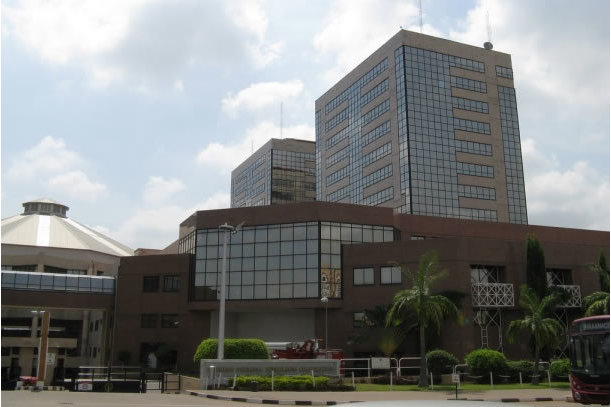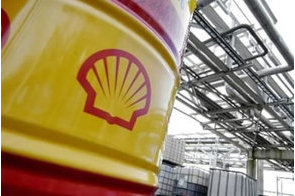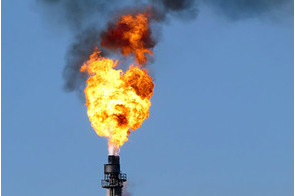Latest News
FG unveils new framework for funding joint ventures with oil majors

News Highlight
- As a result of the new funding mechanism, Kachikwu said oil production is expected to rise to 2.5 million barrels per day by 2019, while government revenue will grow by $2 billion annually.
The Federal Government of Nigeria has announced the termination of joint venture cash call contracts between the Nigerian National Petroleum Corporation (NNPC) and international oil companies operating in Nigeria’s oil and gas industry. Following the formal exit of the funding arrangement that has existed for over four decades, the government has provided more details on a new funding framework that was alluded to by President Muhammadu Buhari during his 2017 budget presentation at the National Assembly on Wednesday.
The president had told the joint session of lawmakers that the government was embarking on reforms to enhance the efficiency in the management of the nation's oil and gas resources.
"To this effect, from January 2017, the Federal Government will no longer make provision for Joint Venture cash-calls," Buhari said. "Going forward, all Joint Venture operations shall be subjected to a new funding mechanism, which will allow for Cost Recovery. This new funding arrangement is expected to boost exploration and production activities, with resultant net positive impact on government revenues which can be allocated to infrastructure, agriculture, solid minerals and manufacturing sectors."
Speaking in Abuja yesterday, Minister of State for Petroleum Resources, Emmanuel Ibe Kachikwu, said a new self-financing joint venture arrangement has now come into operation.
“We are letting the operators capture their cost, deduct that, prior to getting to the next income position, back into the Federation Account,” Kachikwu said, adding that oil companies would no longer be constrained by relying on the federal government to pay its own share of their exploration and production costs. The IOCs can deduct their costs, and also raise money from financial markets.
As a result of the new mechanism, the minister said oil production is expected to rise to 2.5 million barrels per day by 2019, while government revenue will grow by $2 billion annually. The unit technical production cost of oil is expected to fall from $27.96 per barrels today to $18 per barrels by 2019 under the new JV funding arrangement, he said.
The minister further said Nigeria’s oil production has now risen to 1.8 million bpd from 1.3 million bpd reported earlier this year owing to the efforts of government to bring peace to the Niger Delta region.
“But for some minor incidents, we probably would be closer to 2.1mbpd or 2.2mbpd,” Kachikwu said. “The reality about the Niger Delta is that no matter what you do, you never forget your base or you will be planning in vain and so we need to reach out to that base. We set a zero militancy target in 2017 and we want to ensure that anything that needs to be done should be done.”
Earlier in his speech, Kachukwu noted that the partial removal of fuel subsidy has caused Nigeria’s daily fuel consumption to fall from 40 million litres per day to 28 million litres per day.
“We have a situation today where refined petroleum consumption has gone down from an all-time high of 40 million litres a day to about 28 million litres a day and this says a lot in terms of savings and the efficiency that is in place,” the minister stated.
Also speaking during the event, Vice President Yemi Osinbajo said the FG’s exit of JV cash call contracts will allow $15 billion-worth of new investments to be injected into the country’s oil and gas sector.
The vice president also said that the removal of fuel subsidy has saved the federal government up to N15.4 billion monthly. He said the government is now focused on increasing the domestic refining capacity by repairing the NNPC’s refineries and licensing new refineries.
“We have also licensed modular refineries and support the development of private refineries one of which is a 650,000 barrel per day capacity (being built by the Dangote Group),” Osinbajo said.
The agreements signed with Shell, Total, Chevron, ExxonMobil, and Nigeria Agip Oil Company (NAOC) also includes payment of an outstanding debt of $5.1 billion incurred between 2010 and 2015. Kachikwu said the debt would be paid over a period of five years through incremental oil production volumes.
Related News
Latest Blogs
- AML/CFT regulations and data protection require balance in regulating cryptocurrency
- It's time for honest discussions on Nigeria's security architecture
- Driving economic growth through green transition in Nigeria
- CBN is fighting inflation instead of stagflation
- Why electricity privatization failed (2)
Most Popular News
- IFC, partners back Indorama in Nigeria with $1.25 billion for fertiliser export
- NDFF 2024 Conference to boost Nigeria’s blue and green economies
- CBN increases capital requirements of banks, gives 24 months for compliance
- CBN settles backlog of foreign exchange obligations
- Univercells signs MoU with FG on biopharmaceutical development in Nigeria
- Ali Pate to deliver keynote speech at NDFF 2024 Conference






